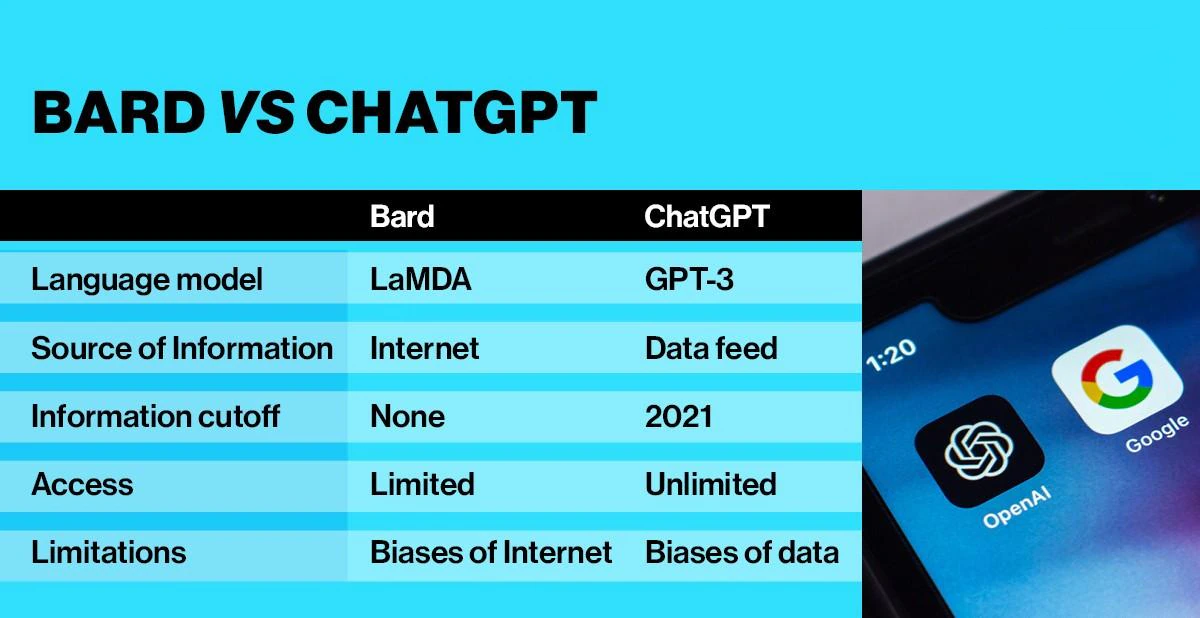Google’s Bard: AI Generative Chatbot | 08 Feb 2023
Prelims: LaMDA, ChatGPT, Generative Artificial Intelligence.
Mains: Google’s Bard: AI Generative Chatbot, ChatGPT
Why in News?
Google will soon unveil its new AI chatbot Bard in response to Microsoft’s ChatGPT.
What is Bard?
- About:
- Bard is based on the Language Model for Dialogue Application (LaMDA), Google’s own conversational AI chatbot.
- It will give in-depth, conversational and essay-style answers just like ChatGPT does right now.
- However, the model is currently a “lightweight” version of LaMDA, and the one being “requires significantly less computing power, enabling it to scale to more users.
- Features:
- It is built on Transformer technology, which is also the backbone of ChatGPT and other AI bots.
- Transformer technology was pioneered by Google and made open source in 2017.
- Transformer technology is a Neural Network Architecture, which is capable of making predictions based on inputs and is primarily used in natural language processing and computer vision technology.
- The architecture determines how the network processes information and influences its accuracy and efficiency in solving a particular problem. Common architectures include feedforward networks, recurrent networks, and convolutional neural networks.
- It is built on Transformer technology, which is also the backbone of ChatGPT and other AI bots.
How is ChatGPT different from Bard?
- ChatGPT has impressed with its ability to respond to complex queries — though with varying degrees of accuracy — but its biggest shortcoming perhaps is that it cannot access real-time information from the Internet.
- But Microsoft just unveiled a new version of Bing that's powered by ChatGPT which is a significant improvement of the version of ChatGPT.
- ChatGPT’s language model was trained on a vast dataset to generate text based on the input, and the dataset, at the moment, only includes information until 2021.
- Whereas, for questions where there might not be a clear-cut answer, Bard will synthesise a response that reflects differing opinions.
- For example, the question, “Is it easier to learn the piano or the guitar?” would be met with “Some say the piano is easier to learn, as the finger and hand movements are more natural. Others say that it’s easier to learn chords on the guitar.”
What are the Concerns of AI-Based Generative Chatbots?
- The text generation software from Google and OpenAI, while fascinating and eloquent, can be extremely prone to inaccuracies, experts have pointed out.
- The ability to search the Internet in real-time, including content such as hate speech and racial and gender biases and stereotyping, could lead to problems, and take the sheen off these new products.
- Even with natural language processing, they may not fully comprehend a customer's input and may provide incoherent answers.
- Many chatbots are also limited in the scope of queries that they are able to respond to.
UPSC Civil Services Examination, Previous Year Question (PYQ)
Q. With the present state of development, Artificial Intelligence can effectively do which of the following? (2020)
- Bring down electricity consumption in industrial units
- Create meaningful short stories and songs
- Disease diagnosis
- Text-to-Speech Conversion
- Wireless transmission of electrical energy
Select the correct answer using the code given below:
(a) 1, 2, 3 and 5 only
(b) 1, 3 and 4 only
(c) 2, 4 and 5 only
(d) 1, 2, 3, 4 and 5
Ans: (b)

